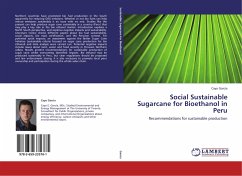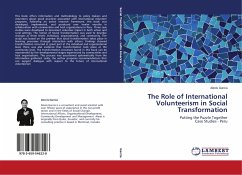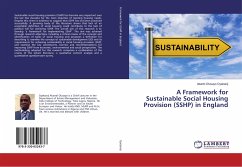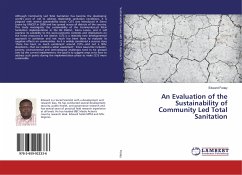Northern countries have promoted bio fuel production in the South apparently for reducing GHG emissions. Whether or not bio fuels can help reduce emissions sustainably is an issue with no end. Studies like the present can help produce sugar cane sustainably in a country (Peru) that may play a key role in the bio ethanol market. Introduction explains a North South perspective, and explores negative impacts and sustainability. Literature review checks different papers about bio fuel sustainability, social impacts, bio mass certification, and the Peruvian context. For potential social impacts; an assessment against the Better Sugar Cane Initiative (sustainable criteria focused on sugar cane production for bio ethanol) and data analysis were carried out. Potential negative impacts include issues about land, water and food security in Peruvian Northern valleys. Results present recommendations for sustainable production of sugar cane whilst overcoming identified impacts. Bio ethanol may be produced sustainably in Peru, but clear regulations should be proposed and law enforcement strong; it is also necessary to promote local poor ownership and participation during the whole value chain.
Bitte wählen Sie Ihr Anliegen aus.
Rechnungen
Retourenschein anfordern
Bestellstatus
Storno








